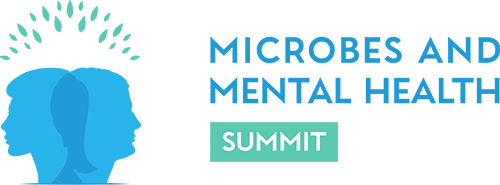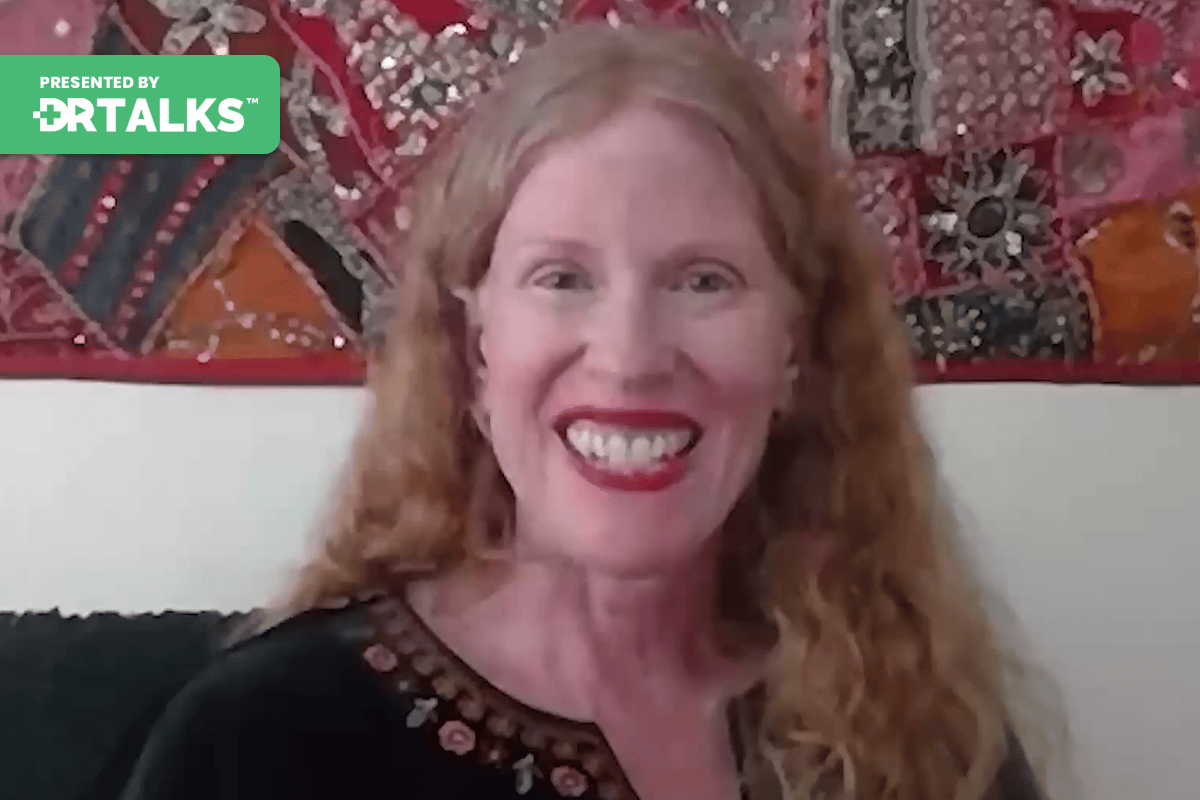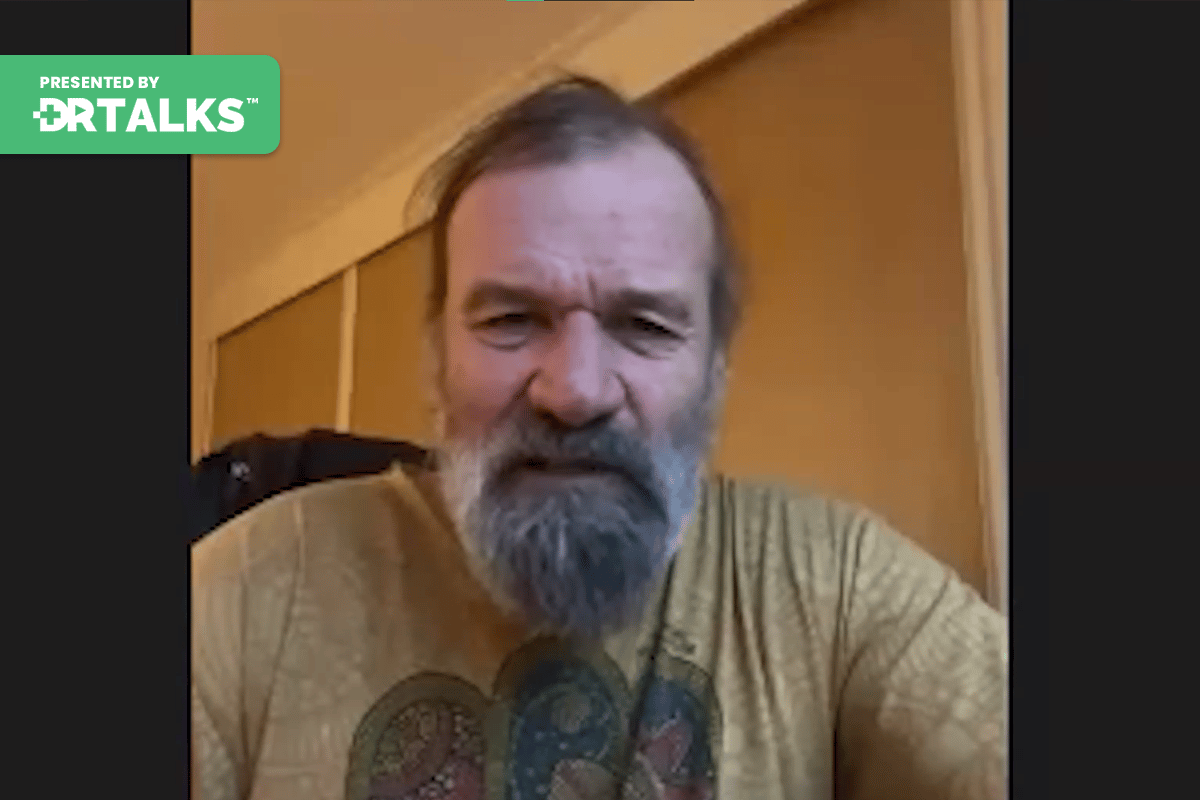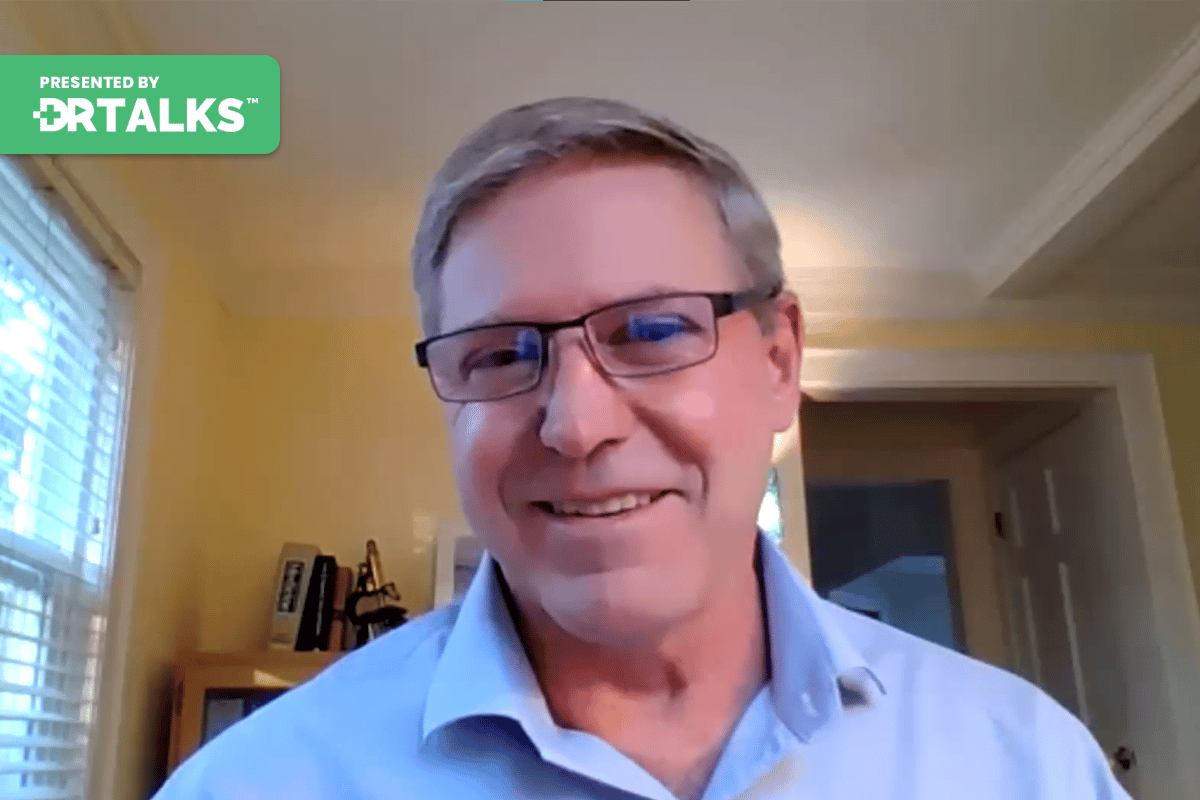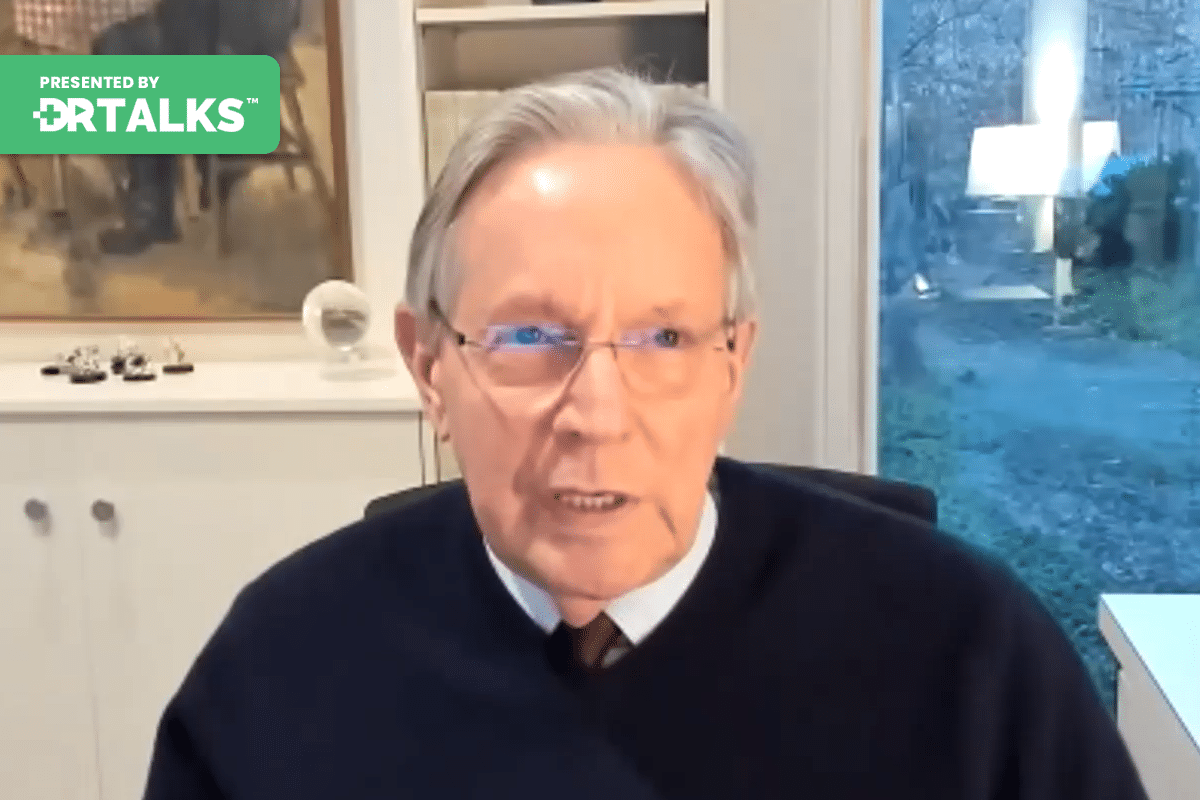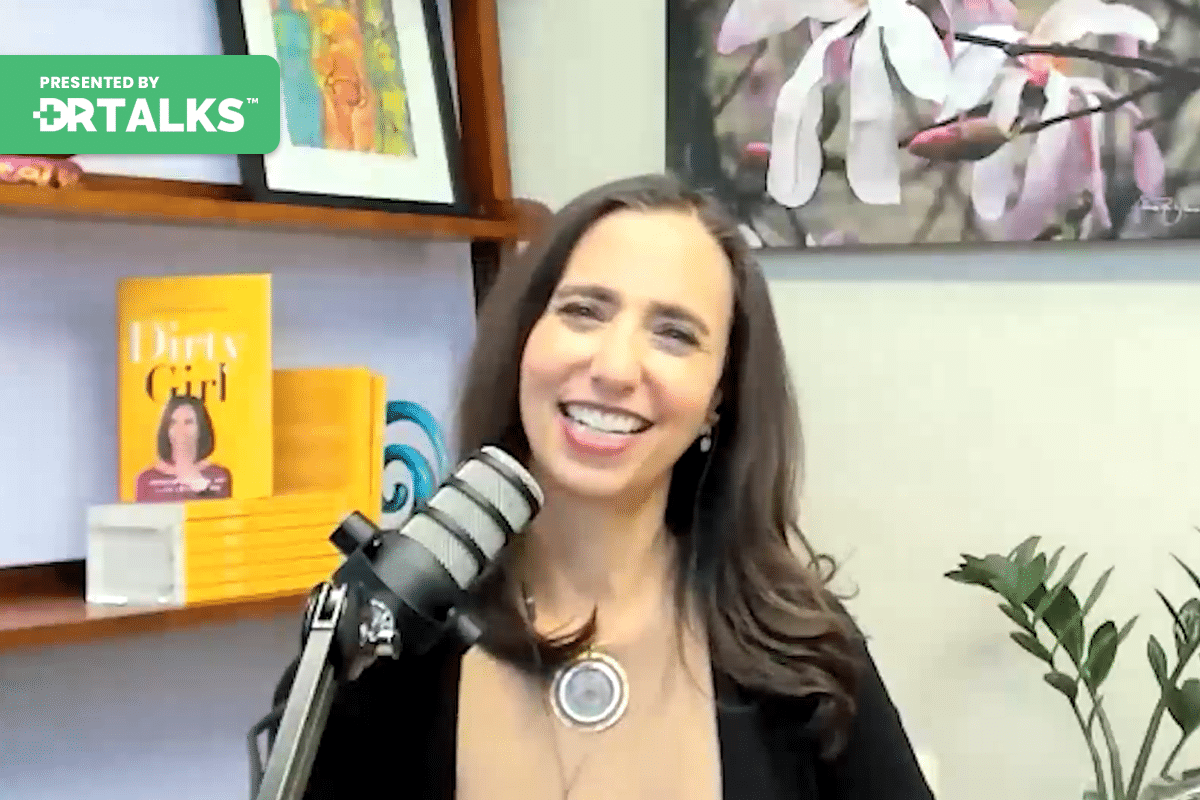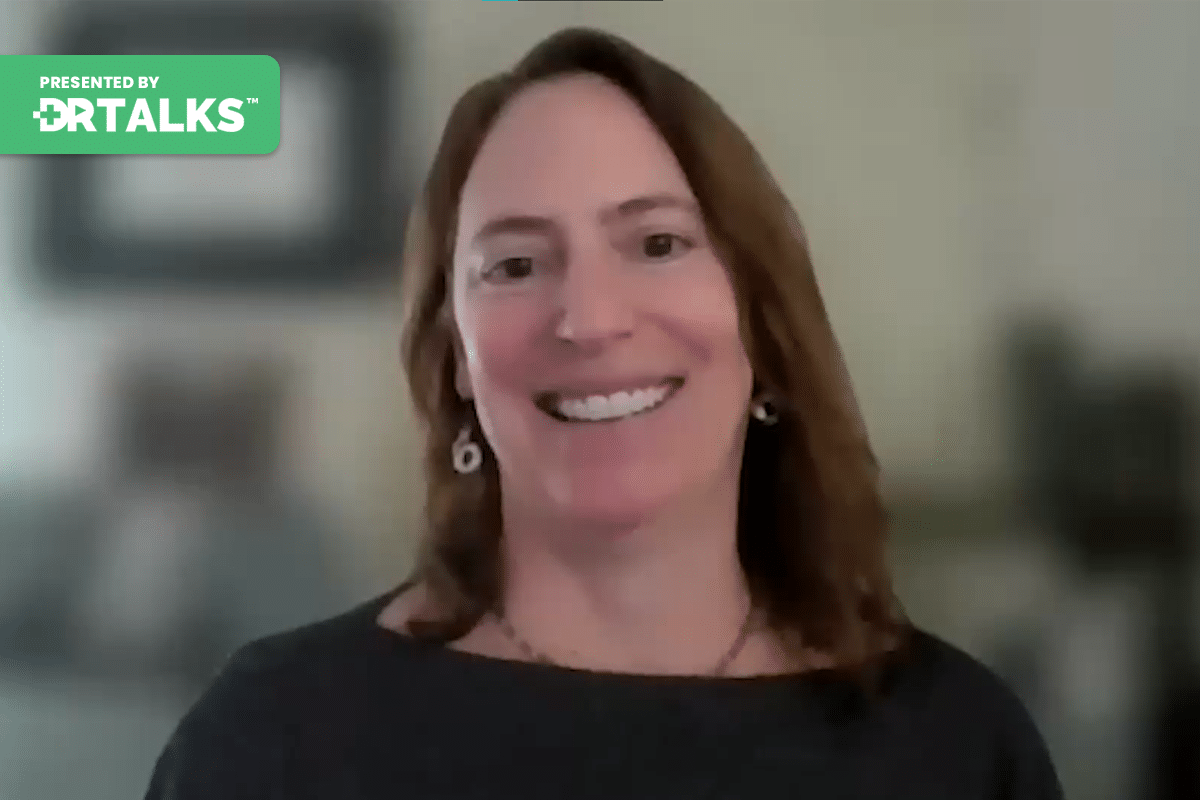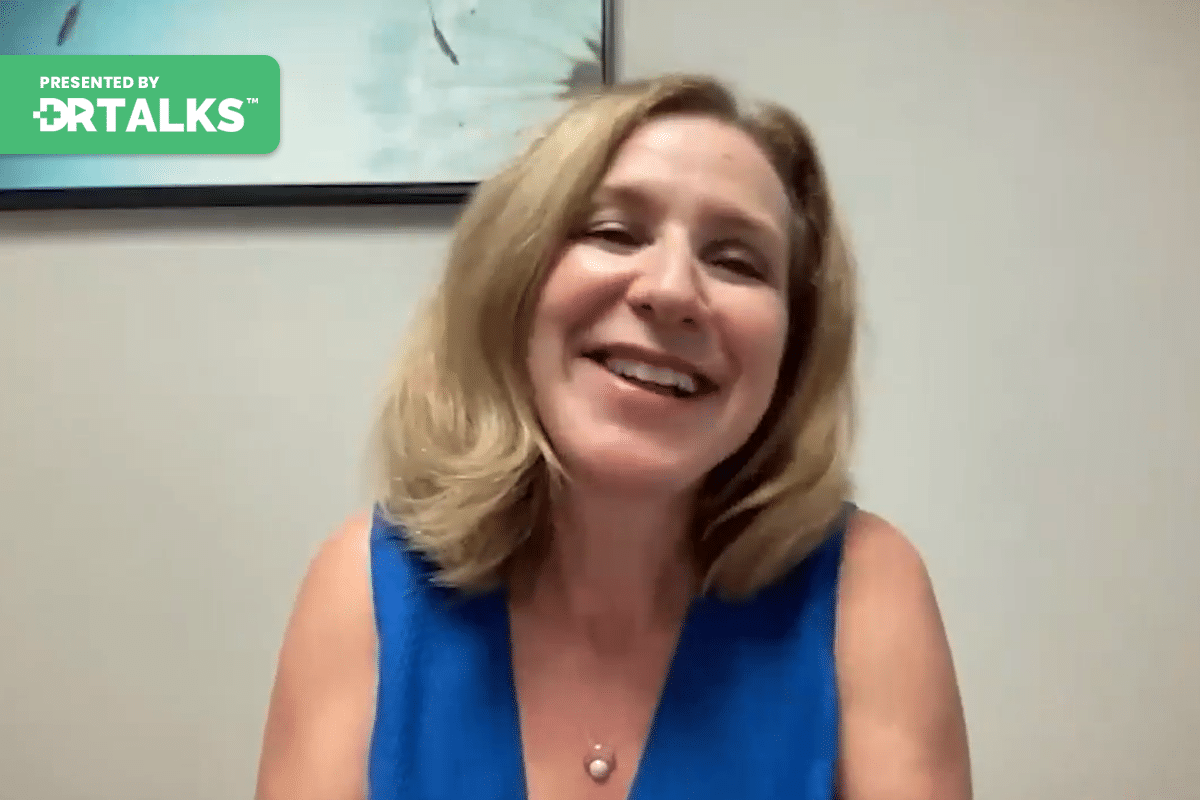Join the discussion below
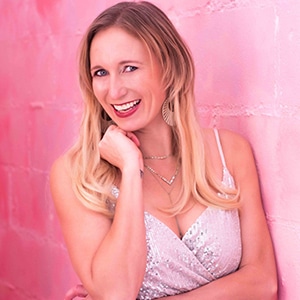
Dr. Diane Mueller is the founder of My Libido Doc, an online community dedicated to helping women reclaim their desire. My Libido Doc provides education, community and health care services for women. Alongside her double doctorate in Naturopathic Medicine and Acupuncture, Dr. Diane extensively researches libido, pleasure and women's health... Read More
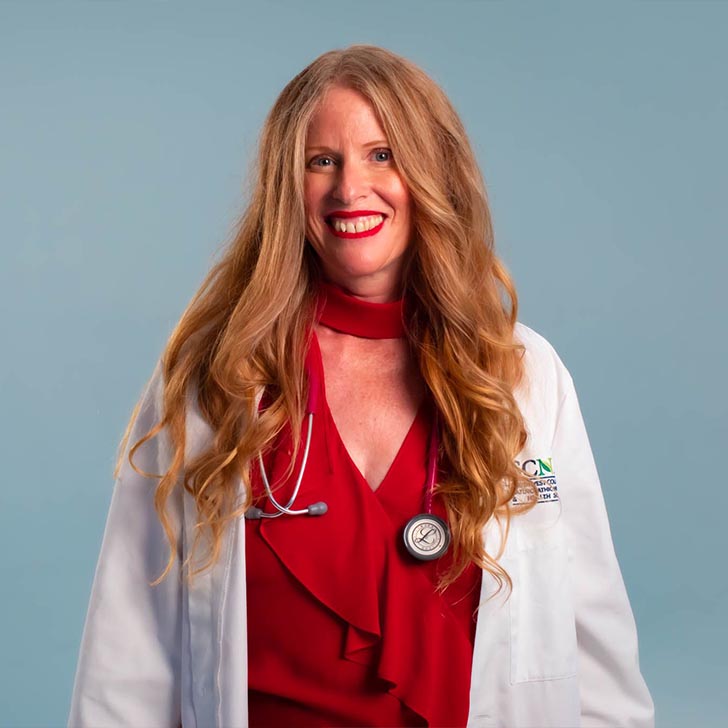
Dr. Sharon Stills, a licensed Naturopathic Medical Doctor with over two decades of dedicated service in transforming women’s health has been a guiding light for perimenopausal and menopausal women, empowering them to reinvent, explore, and rediscover their vitality and zest for life. Her pioneering RED Hot Sexy Meno(pause) Program encapsulates... Read More
- Learn about the link between microbes and hormones
- Learn about chinese medicine meridians and how they plan into mental / emotional health
- How to work with challenging mental health issues beyond medication
- The glymphatic system of the brain and how it impacts toxicity load the body
- Pleomophic theory and its relationship to disease prevention
Related Topics
Anxiety, Beta Glucuronidase, Beyond Medication, Bipolar Disease, Challenging Mental Health Issues, Constipation, Depression, Estrogen Balance, Estrogen Metabolism, Gallbladder, Gut, Hormones, Liver, Lymphatic System, Medication Management, Mental Health, Microbiome, Mouth Health, Naturopathic Medicine, Stool Testing, TerrainDiane Mueller, ND, DAOM, LAc
Hey everybody Dr. Diane Mueller again, Welcome back to another episode on microbes and mental health. I am thrilled to introduce you to Dr. Sharon Stills, our next guest. Welcome to the summit Dr. Stills.
Sharon Stills, ND
Thank you, it’s lovely to be here.
Diane Mueller, ND, DAOM, LAc
It’s so great to have you start by telling us a little bit about you, how you got into this world, what your work is. Just tell us a little bit about yourself.
Sharon Stills, ND
I’m gonna have to give you the contents version or a little bit like weeks but you know, microbes are of such interest and a lot of people know me as the menopause queen doctor and that is true, but I actually when I went to naturopathic medical school way back in the late nineties I got very involved with bio regulatory medicine and spent a lot of time over in Switzerland and Germany and so we were talking about the microbiome way before it became on the scene as functional medicine and I remember, you know my mentor at the time Dr. Rao saying you know, I can’t do the swiss accent but you know in that cute accent and jumping up and saying, you know, we are more microbes than we are human cells, we are walking bags of bacteria and so that was kind of you know this microbial way of thinking of things has always, even though I do a lot with hormones and so forth, it’s always kind of floating through there. So when I’m working with a patient and balancing their hormones, I’m also looking at their internal milieu there. Extra cellular matrix, the terrain, There’s lots of different ways to say it, but you know, really looking at the space between the cells, the soup that the cells are bathing in and the microbes and of course in the gut and in our mouths and you know, we have so many areas where we have this microbiome and so it’s a huge part of how I think as a physician.
Diane Mueller, ND, DAOM, LAc
Wonderful, I think that will just kick us off into our first question here. So, since your area is really in hormones and menopause and these types of topics, let’s make some of these links. You’re talking about the microbiome. So talk to us about the link between hormones and the microbiome.
Sharon Stills, ND
So I’m sure there are many more links than we have even figured out yet. You know, science is always marching forward as is medicine, which is so important to work with a physician on your team who is really keeping up because like I think back to like what I knew 20 years ago and some of it, you know, there are certain things that, just they are just timeless and they stay the same and then there are other things that just keep progressing and so we now have an area of the microbiome called the Strobel and this is specific for how the microbiome are playing a role in estrogen metabolism breakdown and escorting it out of the body. And so when I do stool testing on patients which is looking at their entire microbiome which I highly recommend that everyone have a stool test done and not just a stool test from your G. I. Doc where they look to see if you have giardia or parasite very basically. But a real in depth stool analysis of your microbiome, it can give us so much information about your digestion, your inflammation, how you’re utilizing your food and how your metabolizing your estrogen.
Which is what we started by talking about. And so beta glue Khurana days is one of the things that’s measured and this is an enzyme that if it is elevated is going to interfere with estrogen as it’s being pooped out of the body and it’s gonna send it back into circulation it’s gonna you know unwrap it, it’s going to open the plastic bag it’s in and kind of dump it out so that it gets recirculated. And then we start having an issue with too much estrogen and estrogen toxic estrogen that doesn’t belong in our body. And I speak a lot about estrogen because she’s so misunderstood and we’re so afraid of her. But once we are going through the menopausal transition and post menopause estrogen is dropping off like jumping off a cliff, dropping off and we need to replace estrogen but we need to replace it appropriately with the right kinds of estrogen and we need to be monitoring it and so back to the microbiome. if you have too much beta glue khurana days than calcium. D glue curate is a good supplement you can use to lower that. And so it’s just one example and it’s a pretty common example as we were talking about before we came on air. But it’s one example how nothing in the body is isolated and how the bacteria and the microbes are there and they’re influencing everything. And so you can’t when we’re talking about hormones you can’t just say I’m gonna take some bio identical hormones and that’s all I’m gonna do. You have to it’s like I won’t let patients work with me unless we’re looking at their terrain.
We’re looking at their lymphatic system, we’re looking at their liver, we’re looking at their gallbladder and we’re looking at their gut. Those are some of the main things that we have to be looking at. And so if you know and then just basic like constipation which is such a huge issue and you know ask yourself am I constipated and I learned early on in practice to really drill down as I’m sure you did as a natural path. We love to talk about poop and so you know to drill down you know do you move your bell? Oh yes well how often oh once a week you know that’s regular for me but that’s not normal we need to be excreting it’s like food in waste out and so if we’re constipated, we’re changing the whole balance of our microbiome and we’re gonna certainly lead to depression, anxiety and all sorts of other mental health issues. And so I love that you’re doing this because it’s just like, I would think that some people might say, oh microbes and mental health, like what’s that got to do with it? You know, mental health, I need to take my anti anxiety or my antidepressant, but it’s like, no, no, no, no. Our mental health is an expression of our microbes, of our toxic levels of our hormone balance of our neurotransmitter balance of our terrain. And so it’s so great that you’re doing this to put those pieces together because that’s how we as naturopathic physicians, that’s how we think of medicine.
Diane Mueller, ND, DAOM, LAc
Yeah, yeah, things are saying there’s so many you gave me so different, so many different directions to go. So I have a lot of different directions. I’m going to take us. One of the things I just want to really emphasize on what you said that I think is so important is this concept that really it’s not just this one thing, right? So you’re talking about like hormones and it’s like somebody has hormone imbalances, it’s not just about giving them bio identical. I just want to emphasize is that for people because I think it’s a really, really important point and the first place I’m going to take us is from what you said, you’re talking about running these nonconventional, more functional medicine, stool cultures. And one of the things we talked about offline was okay, we have these abnormalities that come back on our stool cultures and they’re influencing things like hormones and mental health, like you mentioned as well as many other parts of the body. But what do we do about these abnormalities?
Sharon Stills, ND
That is a good, that’s a good question. You know, I know there’s a hole and I don’t know what the name like, they have the Strobel and I think there’s like some psycho bloom like there for the psychology and I know there’s a lot of studies and I’m not sure if you’ve talked about or not like showing different levels imbalances not enough. Too much of the wrong can affect our mental health. And I would really like to see, you know, a company that’s really pinpointing where you can remember, I used to do amino acid testing and they would show you what amino acids are low and then you could mix up from the lab, like the specific amino acids and give the patient their specific mix and I don’t think and you can tell me if I’m wrong, but I haven’t found anyone yet who’s really doing that, who’s saying, you know, these microbiota, these microbes are low and we know in the studies we see this is associated with whether it be waking or depression or anxiety. So here’s the special mix. So I’m hoping to find that I hope I inspire someone, it’s not gonna be me who’s gonna create that, but I’ll be your first customer, so you know, so what am I doing?
I’m, you know, I’m balancing the terrain, I’m balancing hormones, I’m cleaning out toxins, I’m moving the lymphatic system, I’m cleaning up the mouth because if we want to talk about microbes, I mean just think about what’s growing either in a root canal tooth or in a cavity ation, which is an infection in the bone after a tooth is pulled and incorrectly and not cleaned out properly. And so I often, you know, and I’m not a dentist, but I am a physician who, because of my studies so early on in europe, really got it, you know, drilled into me literally no pun intended that that the mouth is a great starting place for seeking health or for alleviating disease. And so you really have to have. I mean just even like bipolar disease, let’s just pick that, which can be a challenging one. It’s probably one of the more challenging mental health issues to treat without medications. And I am not saying if you are dealing with bipolar and on medications to stop your medications by any means.
You always have to be working with a physician who understands how to wean you whether it be antidepressants or antipsychotics etcetera, but with bipolar disease, we see a lot of times cavett ations of the wisdom teeth and the wisdom teeth are a great spot where we see a lot of habitations because it’s a common area where teeth have been pulled and they haven’t been pulled correctly and they haven’t been cleaned out and they haven’t been nominated. And so microbes are brewing there. And so when we think about the teeth we have meridians connections to every teeth. And so the wisdom teeth are connected to the small intestine and the heart. And so the heart has a lot to do with our emotions and our joy. And so there’s just been a huge correlation. So if I have a patient who is dealing with a diagnosis of bipolar, it’s one of the first things I do. It’s like often used to be off to get your panoramic. Now how the gold standard is to get a three D comb beam where the dentist can see so much more. And so it’s like you know, I’m gonna run a thermography. I’m gonna see if you’re regulating in that area, you’re going to go get your cone beam, we’re gonna see if you have capitation and we’re gonna get those cleaned out. And then along with that I often always see a high mercury load which also often is coming from the teeth because I’m one of the few people who’s never had amalgams in my mouth. I just didn’t get cavities as a child. I think I had my first cavity, I was like 28 years old. So I got, you know, the universe was looking out for me in that respect. But most people have had amalgams in their mouth and if you’ve had them removed, prop hopefully by a biological dentist, because if you do have amalgams better to keep them in than to have them removed by a well meaning family dentist, you want to really make sure you’re getting them removed properly that you’re being prepped and your organs are draining and so forth. But you have to remember and I see this overlooked a lot once you get them out, it’s not the end of the story because they were kind of like little faucets and they were dripping, dripping, dripping, so you have to go in and look at the body burden and so that’s just another thing I see commonly with a, with bipolar issue. And so this has nothing to do with even regulating the brain, but it’s taking away the toxins, the microbes that are affecting the brain.
Diane Mueller, ND, DAOM, LAc
Let’s keep going on this. I like the direction we’re going. So let’s keep going on this concept of like the brain and mental health and some of these microbes, so we’re talking about mold and c diff and for crystal pathways. So basically tell us about that and the effect, you know, with your api or nor adrenaline as it’s no more commonly or epinephrine or adrenaline and how mold in some of these infections will actually impact things like adrenaline and adrenaline.
Sharon Stills, ND
I will and before I go there I want to just talk about the lymphatic system.
Diane Mueller, ND, DAOM, LAc
Okay, I love this,
Sharon Stills, ND
We’re not draining then you know we’re not getting well. So the lymphatic is how we move and drain and move these toxins out of our body. And so we have this glimpse static, it’s the lymph of the brain and we need to make sure that is flowing so we can have brain detoxification and that system drains at night when we sleep when we get into deep sleep. And so if you’re not sleeping and I’m kind of going, it just shows how there’s so many, it’s like this web, all these things, but you know, if you’re not sleeping well one, you’re not draining your glimpse and too, I mean not sleeping, it’s such a root cause for any kind of mental emotional issue. And so it’s one of the the foundations of, you know, when I have a patient come in, there’s certain things I’m looking at, clear the field and just lifestyle and sleep is always it’s like if you’re not sleeping you’re not healing if you’ve got focal infections in your mouth, if you’ve got scars blocking your flow, you’re not healing. And so we have to get the body sleeping. We have to prioritize sleep and not prioritize how many things we can get done and check off of our to do lists. So you just made me think of that when you said the brain. But yes, so I mean mycotoxins so mold can mimic estrogen. So again can cause, and a lot of times with estrogen, what we create is a imbalance.
We create like an estrogen dominance and that doesn’t mean that you don’t have any progesterone, although often women don’t have any progesterone. But what it means at the very minimum is that you have too much estrogen in relationship to the progesterone you do have. And so that can cause all sorts of problems like anxiety. Progesterone is one of my favorites. You know, it’s nature Xanax, right? It’s our hormone that just kind of like chills you out, relaxes, makes everything okay. And so you know, if we have mold, we can think, oh this is a hormone issue and maybe it is on the, on the outside, on the exterior. But if we only balance the hormones and we don’t get rid of the mold, then we haven’t gotten to the root issue and that issue is always going to be perpetuated. But if we can take away What’s causing it. So we always have to be looking at these toxic levels. I mean it you know, maybe when I first started, I like would say, Okay, let’s figure out how toxic you are. You know, over 20 years ago and even that was kind of bright eyed and bushy tailed but now it’s just you know it’s okay, we know you’re toxic. Let’s see where it’s interfering, Let’s see where it’s really having this impact on your health.
Let’s see how your organs can handle alleviating the toxic load and let’s get to work on that. And so also you know, we have mold producing for Krystle which is turning off beta hydroxy Alice enzymes and so these are pathways and you can see these in organic acid testing and then so we have you know, we can see c difficile elevated and all of these things and then what does it do? It ends up affecting our dopamine or norepinephrine or epinephrine causing anxiety and it’s like wait I thought anxiety was because I was lacking Xanax or Ambien because I wasn’t thing or because I don’t know how to handle my stress because my cortisol is pumping out too much. But again it’s another way you can see where, oh it’s like my mycotoxins are driving a lot and I feel like mycotoxins are like you know they’re sort of you know being in this field for over 20 years. They really they’re kind of getting their state, you know their place on the stage now that everyone’s talking about micro toxins and parasites where I think 10 years ago there wasn’t as much talk it wasn’t really common to think about it.
So there’s you know, so I think one of the, one of the take home message is here is that like if you are struggling with mental health with depression with anxiety, with bipolar polar disease with schizophrenia, with any of these issues that are mental health related, that you know, I hope that you find someone who thinks outside of the box that the psychiatrist who’s just doling out medicine, they’re not thinking that you’re ever gonna get off that medicine and they really just play Polly pharmacy. You know, Well let’s see if this works and if it doesn’t, we’ll add this and maybe we’ll take away this and then we’ll have side effects from this. So then we’ll add this and then we’ll add this. And so, you know, if you have a very severe issue, it may stabilize you and that’s important, we want to stabilize. But there’s so many other ways to address the psyche from, you know, looking at the microbial balancing that out, detoxifying using homeopathic remedies to treat your whole gestalt of who you are balancing your hormones, just looking at your endocrine system. I mean the thyroid gland, you know, low thyroid is going to lead to constipation, it’s gonna lead to depression, it’s gonna lead to foggy brain and so getting that actualized and balanced and then if you are stressed out and you’re secreting cortisol, you know, cortisol is great and it’s one of my favorite hormones and its life giving and so forth. But too much of anything becomes a toxin and becomes an imbalance, and so you can become cortisol toxic, it can affect your brain and so that can lead to huge levels of anxiety and so thinking about the food you’re eating and how that can be affecting you. So, you know, dehydration, I mean, there’s just so many things, so I’ll be quiet and let you just like.
Diane Mueller, ND, DAOM, LAc
You know, it’s really exciting and I think, you know, I think one of the biggest things that we can, you know, help people extrapolate out of this is, like, really that medicine and getting well is like, this is where it’s as much of an art as it is a science where it’s like, there’s so for any symptom, you know, we’re talking about, we’re talking about microbes and mental health, we’re talking about mental health, but we’re talking about so many symptoms that can be involved here and there can be so many root causes and that’s really where the art of this is, is figuring this out, because it’s it is one ginormous web. One thing I want to ask because I think this is gonna be a question our listeners are going to have before we move on is from a hormonal imbalance perspective. So if somebody’s having some classic hormonal imbalance from a say, estrogen progesterone, testosterone type of hormonal imbalance, maybe it’s PMS, maybe it’s early onset menopause, maybe it’s just dysfunctional menopause. Because whatever it is, when do you advise people from figuring out the root causes to say, okay, well we really need to look at something like molds and mold can mimic estrogen. Where do you advise people to go down the route of looking for mold?
Sharon Stills, ND
So that’s a great question. And that really plays into the art. Right. And so it’s kind of taking in, you know, if you just have some basic symptoms, maybe you’re having hot flashes or you’re not sleeping and you have a pretty healthy history and you know, I might just start with getting the hormones balance. But it’s always kind of like, if you see the reports I write to patients, it’s always kind of like, you know, this is where we’re gonna start, but we need to be looking like, I think everyone should be checked for mold for lime, for heavy metals, for their microbiome. These are things that we need that information. We need to kind of know and see how severe is it. And especially if you start doing some of the basic stuff and you’re not getting the relief, then we definitely dig deeper. But I don’t want to just wait until you’re struggling. I wanted to kind of be like, my mission is to change the way we think about health and not to be reactive, you know, not to be, but to be responding from a from a curious and proactive place because don’t you want to know if you’re full of toxins like that is gonna affect don’t you want to know if you’re not clearing viruses and you know your microbial state is imbalanced like this all affects how we age, how we heal it affects you. You know when we do have a virus or a pandemic it affects like how you’re gonna handle it, how sick you’re gonna get or you’re going to be resilient and is it going to just help support your immune system train your immune system? Is your immune system ready and on you know ready ready and up for you know for the task. And so I think that these things I’m constantly engaging patients to be preventative, it’s a lot easier to prevent and to have awareness than it is to go chasing after a disease process. And you know we do it and you do it, I do it we do it all the time with patients but I’d much rather prevent and support than have to wait till you get ill.
Diane Mueller, ND, DAOM, LAc
Yeah the thing that happens sometimes in medicine of the prescriptive plan of watch and wait is you know it’s kind of funny it’s like watch and wait till I get worse and we’re gonna wait till I get worse to like do something about it. It’s there’s that I like that your honor permission to kind of help with the changing the way we’re actually thinking about this, it’s super important, I want to make sure we talk about something, we talked about offline which is polymorphic theory so and that’s kind of related to you know to this, treating the root or getting to a preventative standpoint. So can you talk about play a more fake theory? And let’s just start with telling us you know, basic 101 what this is.
Sharon Stills, ND
So play a more fick theory is based where terrain theory comes from rather than germ theory and so I’m a big believer in terrain based theory and I, you know there’s there’s lots of different thoughts so I believe that when we have a strong terrain and we can define that in a minute that if we get a microbe coming at us that it won’t be able to set up shop and cause illness in our bodies if we are feeling healthy if our terrain is balanced. And so I think about when I used to treat a lot of kids in the clinic who had you know bronchitis and pneumonia and strep throat and you know being there examining and they would just cough or sneeze on me or my guy and you know that’s just kinda how it goes when you’re treating kids and so you know why did I not get sick and why did I maybe sometimes get sick and the the defining factor, the differentiating factor and that is what was going on with me, if I was getting enough sleep, if I was hydrated, if I was mineralized. If I was not stressed, if I was emotionally in a good place, if I had good essential fatty acid balance, if I was al Kalin, if I was all these things then when I got coughed and spit on and to all my orifice is my terrain was just like not a place where these microbes would want to set up shop, it wasn’t hospitable to them, but if I was, you know, not doing all of that, then sure I might get sick. And so that goes to talk about polymorphism. So a good way because I think we’re all familiar with strep throat and so strep actually lives in our throat all the time. And so it’s symbiotic.
These microbes I call we call them Sim Beyonce’s and so they have permanently colonized us, it was kind of like they needed us for survival. And so what were they going to give to us? And so like music or racism. Asus gave to us hemoglobin and blood proteins and fiber and the ability from besides the ability to clot. And so it gave us these life processes and we gave it a home to live in and so when we are so we go back to strep, so when we’re taking care of ourselves strep is there, it’s helping have the proper terrain microbiome in the throat. But when we are out of balance, the strep goes through a plea or fake process and it upgrades to where instead of being symbiotic it becomes pathogenic. And now we have strep throat. And so when we take an antibiotic it wipes out the whole terrain. Yes we might feel better but at what cost because then we become resistant to antibiotics and then antibiotics can’t kill all the bacteria and sometime what they do they create these cell wall deficient forms where they just take the cell wall off the bacteria now becomes a superbug.
Because now the immune system has no way to recognize it because the cell wall is gone and then these bacteria can now burrow into our tissues and their one cause of autoimmune disease. And so you can see in an instant I don’t feel good, I don’t want to be sick. I’m gonna take this antibiotic. But we don’t really think about the long term ramifications and I’m not saying never. You know you need to work with your doctor to see what I can say is because I learned about polymorphic theory and because I learned about ice empathic remedies. I’ve been practicing over 20 years and I’ve never had to use an antibiotic for any kind of itis because I know how to encourage the bacteria, the fungus, the whatever the micro biz the virus to come back down to a symbiotic state. And so in that effect balancing the terrain. And so it’s a very and it’s a very empowering way of looking at medicine rather than like I’ve got to be afraid of everything that’s coming at me. It’s like you know I always talk about like you know we’ve been taught to be afraid of menopause like oh I’m gonna be a fat cow and put out to pasture and not matter and sucks and I don’t want to go there and instead I’m like no no no it’s like hey menopause I’m coming for you like I’m ready for this and I got you. And so it’s the same thing with microbes like instead of being afraid of them it’s like no I love you, I honor you, we work together, I’m not afraid of you, I’m empowered to make good choices for my body. So that microbes want to live in me and support me and the nasty ones that are going to cause illness. They’re like yeah I don’t like that hotel. I’m gonna go look for another place to stay.
Diane Mueller, ND, DAOM, LAc
Yeah I love that analogy. So great. What do you think we have not covered today that you feel like we should in our conversation.
Sharon Stills, ND
Well I wanna talk I guess one thing would be the nervous system because we really can’t heal if we are in state of stress or anxiety. And so you know the vagus nerve is really you know got just like mycotoxin vagus nerve is getting it’s time to and I’m so excited to see that and I see the lymphatic system coming along, you know, these are like my favorite things that I used to to heal people when they’re not getting results elsewhere. And so we really need to you know, be in a state of flow to be in a state of able to take the brake off of things to rest, relax, digest. And so when we think about, you know, going back to like microbes and being afraid like using hand sanitizer, you know, I’m like I I have some small grandchildren now and I’m like, you know, go play in the dirt, like you’re getting sick, go play in the dirt. That’s the best medicine I can give you go commune, go get used to the microbes, you know, something on the floor.
Sure eat it. You know, it’s okay. We can extend that five second rule a little because that’s how we grow. It’s how we train our immune system. I use remedies that are their immune stimulators. There a pathogenic bacteria. So they give the immune system a chance without getting you sick to like call the troops to know what to do to stimulate your NK cells. All things that are are in deep decline. And part of that is because we don’t let ourselves have a fever anymore. So we’ve told our immune system like fever is our greatest healer and we’ve kind of told our immune system, yeah, we don’t really want you to do that immune systems like All right, well then I’m just not gonna do it anymore and you know, hello, autoimmune disease and cancer and all sorts of other issues. So I think making sure that your nervous system that you are working on your nervous system and this goes into clearing trauma and knowing how to relax and making sure you’re sleeping and making sure you’re chewing your food, you know, and using the rhythm of the sun and getting in touch with nature.
All of these things are so so important, Nature heals us on so many levels and you know, we are we are nature. I think we forget that because we’re like in when they’re all our artificial surroundings. But like no, we are part of nature. We are, you know, it’s all the giant macrocosm and to not be in fear of microbes because to me fear is one of the greatest suppressors of our immune system and our emotions and our mental health. We didn’t really talk about it, but each organ, so like fear is related to the kidneys and the bladder. It’s also related to your two front teeth where the meridian runs through and the liver and gallbladder, anger and so emotions are intimately connected through energetic through our meridians to our organs and so learning how to get calm, learning how to be mindful learning how to be present is and to to interacting and having a different dialogue with your depression, with your anxiety, with what you know to to seeing it as a bringer of information and to to realize that the mind and body is is truly connected. So I you know if someone comes in with depression it’s like I’m looking at you know are they iron deficient as their thyroid off? Are their hormones off?
Is there mold going on or do they have heavy metal toxins? Is their terrain? It’s like all these things but it’s also then looking at like what’s your what’s your child good story, what’s the I don’t think any of us escaped childhood without some kind of trauma and so you know what’s going on with your inner child, what’s going on with your family constellation? What’s going on trans generationally, What’s going on with your immune system, What’s going on just even in your life? Are you living your passions? Do you have supportive community? Are you nurturing yourself? Are you moving your body, are you getting the healing power of the sun? And so it’s so multifactorial I think if you take nothing else from this talk where we’ve kind of gone across the globe a few times, it’s like so multifactorial. So like where you’re told oh there’s nothing you can do like when you see a doctor like Dr. Diane or myself, it’s like oh my God, there’s so many things to do and that’s where the art comes, where we help you figure out? Like, you know, what’s the steps, what’s the most probable cause? What’s really interfering with your vital force?
Diane Mueller, ND, DAOM, LAc
Yeah. And I hope that you guys are, you know, kind of taking so many of these components of what Dr. Stills is saying here around some of these questions that are important to ask yourselves around. Do I have purpose? Am I you know, what is going on? Is there a family lineage thing? What’s actually may be causing some of these internal thoughts? You mentioned a lot of things that I think are really related to more the terrain theory of disease. You know, making sure that we are sleeping for lymphoma mc system and the lymphatic system. I mean making sure that we’re sleeping for our lymphatic system, making sure that we’re eating well, making sure that we’re not using alcohol, all these different things. But the terrain theory, like we’re saying with like the play a more fick theory on top of that, we’re saying that it’s a huge impact of our microbes, of our mental health and wellness of our hormones and all of the web around the globe, As you said, we’ve been talked about. So is there anything else besides, you know, some of the things you just discussed here, Is there anything else from a true terrain? Let’s not watch and wait, let’s prevent this stuff. You know, some of our foundational stuff that we haven’t mentioned that you think just needs to be mentioned here today.
Sharon Stills, ND
We didn’t really talk about hydration and I think hydration is crucial. But one other thing that came up when you were talking, I was thinking, you know what’s like, I think testing and proper testing is so important and even, you know, within the natural functional bio regulatory field that even testing can vary and so you really have to get the right test, they have to be done the right way with the right lab and so you really want to get good information I think certainly and I think the audience here is you know, well educated, but you know, if you’re new to this, if you’re just checking in and like you’re like, well, you know my G. I. Doctor did a the gut test or test, you know, they did a Western blot at lab corps for lyme, like that’s not enough. And so you do have to spend the time and the money to really do the right testing to uncover what’s really going on because I’ve seen it. So I’m gonna see it with hormones all the time.
But I see it across the board like, oh that was evaluated or I had my blood work done, they said my thyroid is fine, you know, that’s such a common one and they just ran a TSH. So really, you know, it’s like, don’t give up hope. It’s like you’re here, you’re getting educated and realize sometimes it takes some time and effort to really uncover to really see what’s going on, you know, did you just have, you know, did your doctor just run a letter mercury in your blood? Like not accurate? You need to do it provoked your test. And even within these testings, like the gold standard type of testing, there’s still limitations. So then you really need someone who’s gonna, you know, look at your labs, but most importantly look at you and look at what’s going on with you and you know, treat the person the labs makes sense. You know, then it’s like a Gold Star double Gold Star Day.
Diane Mueller, ND, DAOM, LAc
It’s such a great way to kind of conclude this, It’s so important, I think, to help people understand that, just like, just because you have a test does not mean that the story is over, you might not have the right test that might not be interpreted correctly. You know, look at you, it’s such an important lesson and I really hope everybody is hearing this. I want to make sure that everybody is aware of your giveaway where we talked about doing your liver gallbladder health book. You want to tell us a little bit about that book and what you’re offering to everybody.
Sharon Stills, ND
Yeah, I mean, it definitely goes to talking about like meridians and the health of your liver and your gallbladder and the way the meridians flow through the different times. So like for example, if you find yourself waking up every night and you look at the clock and it’s 2:12 a.m. You know that is in the liver time and it’s just another way of understanding, oh this energy is off, this organ is off and so I talk about the teeth connection, I talk about some testing and thermography and lots of just good things that you can do at home to help support your liver and also that you can have a knowledge of to kind of say to your physician, hey, I want this.
Diane Mueller, ND, DAOM, LAc
Beautiful, you guys can find that on Dr. Still’s speaker page and any other final comments you want to leave us with today?
Sharon Stills, ND
I don’t know, I feel pretty, I usually feel pretty complete, I feel like I was like rambling off. I mean I think I had a lot to say here and there’s a lot of different points you can take from it and so kind of, you know, just think about like what resonates for you now and just trust that what resonates is like the next step in your journey and maybe you go back and listen to this talk in three months and all of a sudden you hear something else and you’re like, oh now that resonates because health and wellness in our lives and being human, it truly is a journey. So learn to be present, learn to be mindful, learn to be grateful and appreciate the journey and I wish you all well and relief from your suffering and just to know that relief is definitely available.
Diane Mueller, ND, DAOM, LAc
Well, thank you so much for all of this. Thank you for joining us. Today. You guys please check out Dr. Stills speaker page, download that book from her and thank you again for being with us.
Sharon Stills, ND
Thanks for doing this.
Downloads
